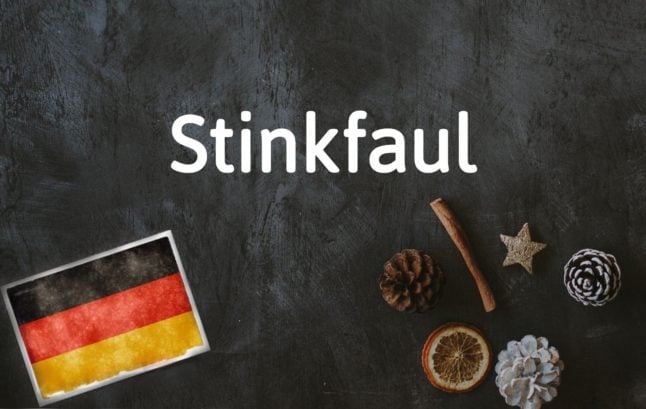In the four years since the last new edition of the ‘Duden’ German dictionary, the world has seen enormous changes, from the pandemic to Russia’s invasion of Ukraine and even changed eating habits.
The dictionary reflects these developments with the inclusion of words such as Coronaleugner (Covid denier), Klimakleber (climate activists who glue themselves to things), Ukrainekrieg (war in Ukraine), Extremwetterereignis (extreme weather event), Deutschlandticket (Germany travel ticket), ChatGPT, and Fleischersatz (meat substitute).
“The Duden is a mirror of its time. These words say something about what has happened in the last three to four years,” editor-in-chief Kathrin Kunkel-Razum told news agency DPA.
The biggest language changes of the past few years can be seen in the areas of crisis, war and cooking, Kunkel-Razum said.
The Duden also highlights language trends, like Quetschie, a word used to describe the squeezable packets of fruit purees that are sold as snacks for children. The term comes from the word quetschen (to squeeze).
Unsurprisingly, there are also quite a few new borrowed words or expressions from English. These include ‘upskirting,’ ‘catcalling’ and pampern (pampering).
The Duden is the most well-known reference work on German spelling and, as such, regularly deletes words that are no longer used very much.
Three hundred words have been removed from the current edition, Kunkel-Razum said.
READ ALSO: What are the best websites and apps to learn German?
These include words like frigidär (refrigerator), UMTS-Handy (UMTS mobile phone) or Rationalisator, a term used in the GDR to describe an employee with rationalisation tasks.
Kühlschrank (der) is the only word for a fridge now, while Handy (das, and without the UMTS) is the ‘Denglisch’ word for a mobile phone.
The dictionary has also ditched spelling variants for some words. For example, Tunfisch and Spagetti are no longer accepted ways of writing tuna and spaghetti. Only Thunfisch and Spaghetti are correct now.
“Deleting words is much more difficult than adding them,” the linguist said, explaining that it was much harder to prove that a word was rarely used than the other way around.
Deletions can also be reversed, she said. For example, the word Hackenporsche (a jokey description for a shopping trolley) was removed from the previous addition but has now been included again.
“We received complaints that the word was deleted,” said Kunkel-Razum.
The reference work – named after German philologist Konrad Duden – used to be binding until Germany’s 1996 spelling reform. The authority on spelling is now the Council for German Orthography, which publishes an ‘official set of rules’.
READ ALSO: Denglisch: The English words that will make you sound German
Reference works like Duden then implement these rules which eventually become incorporated in everyday use.
Kunkel-Razum said the new Duden contained the Council’s latest spelling changes that were approved at the end of 2023.
These include the mandatory use of a comma before an extended infinitive.
An extended infinitive is the bit of a sentence that’s in direct relation to the ‘infinitive plus zu‘ construction. So, according to the new rules, this means that you should write: Gisela weiß mit Sicherheit, The Local gelesen zu haben. (Gisela knows for sure that she’s read The Local.)
Here, the extended infinitive is ‘The Local gelesen zu haben’ so the comma goes before that.
The comma used to be compulsory, then it became optional and now it’s compulsory again – don’t you love German?



 Please whitelist us to continue reading.
Please whitelist us to continue reading.
Member comments